Providing Abundant CARE in St. Lucia
As post-pandemic household incomes continue to decline in St. Lucia, the country’s youth know they’ll shoulder much of the long-term economic and social recovery. At the same time, however, their career options may well be co-opted by the government’s short-term economic decisions. So, an influential teen-formation program in our partner community offers some hope. Loraine Mitille, Coordinator of Anse la Raye’s Centre For Adolescent Renewal and Education (CARE) shares a realistic, but passionate perspective on her trades students’ employment prospects, and is determined to make a difference every day.
In a dilapidated, utilitarian building in Anse la Raye, St. Lucia, a low-key reformation percolates. As a lever of common sense and practical skills, the CARE model’s success track is designed “to help disadvantaged and marginalized youth take advantage of their lives and destinies.” In Anse la Raye, that means launching students into lifelong careers in the island’s leading sectors: Tourism, call centers, real estate and related industries. Employers compete for CARE graduates for placements in hotels, on cruise ships, and in computer, electronics and construction businesses.
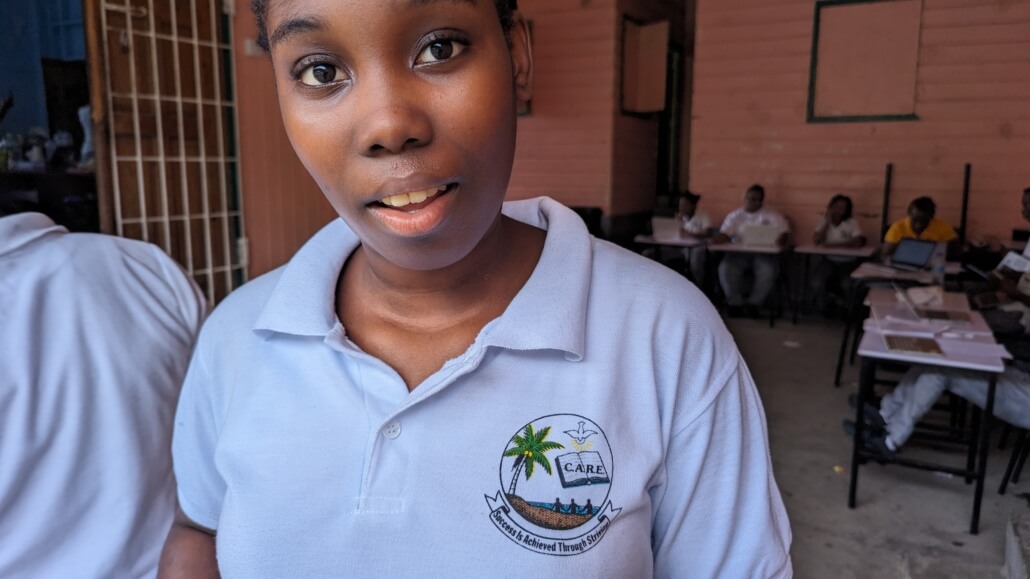
The impact of this program is evident in this pivotal time. Founded in 1993 by Irish Presentation Brother Dominic Brunnock, CARE began as a three-month program in Castries for youth ages 15 to 19; teaching practical trades skills. With an initial curriculum in electrical/refrigeration training, courses expanded over time to include carpentry/joinery, garment construction, catering and food preparation, electronics/small appliance repair, and computer/office services. It now operates as a full-year accredited alternative secondary school in four communities, including Global Volunteers’ partner community of Anse la Raye. Students pay a tuition of 700 Eastern Caribbean (EC$) dollars per year, and are referred by teachers, social service agencies and their families. A supplemental Junior Life curriculum provides entry for adolescents ages 12 to 14 and while the Adolescent Development Program (ADP), functions as CARE’s first-year program, focusing on holistic life skills (SPICES) for students 13-19.
“We serve a population who are dropping out of school, and we primarily teach discipline, morals, confidence and self-esteem so we can better address all the things they go through. So at the end of the day, they are productive citizens.”
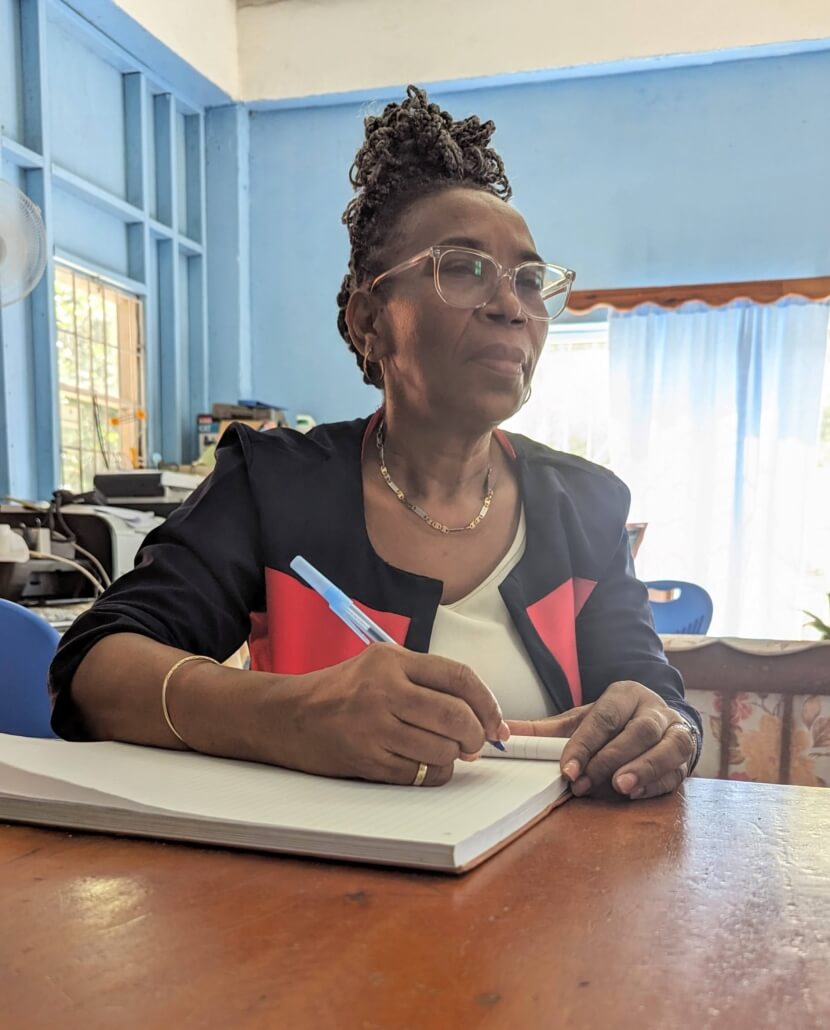
“We serve a population who are dropping out of school, and we primarily teach discipline, morals, confidence and self-esteem so we can better address all the things they go through. So at the end of the day, they are productive citizens.”
“Students enter the SPICES Program in the first year, which focuses on students’ foundational spiritual, physical, intellectual, creative, emotional and social development,” explains Mrs. Mitille. “So it’s basically the whole person.” After completing the first year, they move into income-based skills training. But the life skills training doesn’t end there. “We teach them about good family life, how to be good parents to their children and active in the community,” Mrs. Mitille continued. “We take them to places of interest on field trips so they understand the wider community.”
This includes the island’s prisons. “We take them to the inside, where they are spoken to and they understand what life choices can get them there.” She points to the Center’s founding philosophy to empower students with the self-confidence to identify the alternatives in any situation and to act on the basis of one’s values, priorities and commitment.
The students also visit employers such as hotels, “so they can learn first-hand what really happens when they’re ready for work,” Mrs. Mitille says.
Global Volunteers’ Contribution
Volunteers working at CARE focus largely on first-year students, in their character and social development phase. Individuals who need remedial skills building in math, literacy and the sciences can work one-on-one with volunteers during class periods. Nursing students from the College of St. Benedict in Minnesota recently taught workshops in hygiene, sexually transmitted diseases, mental wellness and nutrition to all students over two weeks. Volunteers with educational and health backgrounds as well as practical skills in mechanics, electrical, cooking, customer service and related industries are always welcome to share their expertise. “We’re looking to enhance the learning environment in many ways,” Mrs. Mittille exhorts. Volunteers with lived experience in overcoming adversity in education, family life, work or social connections are invited to share their stories.
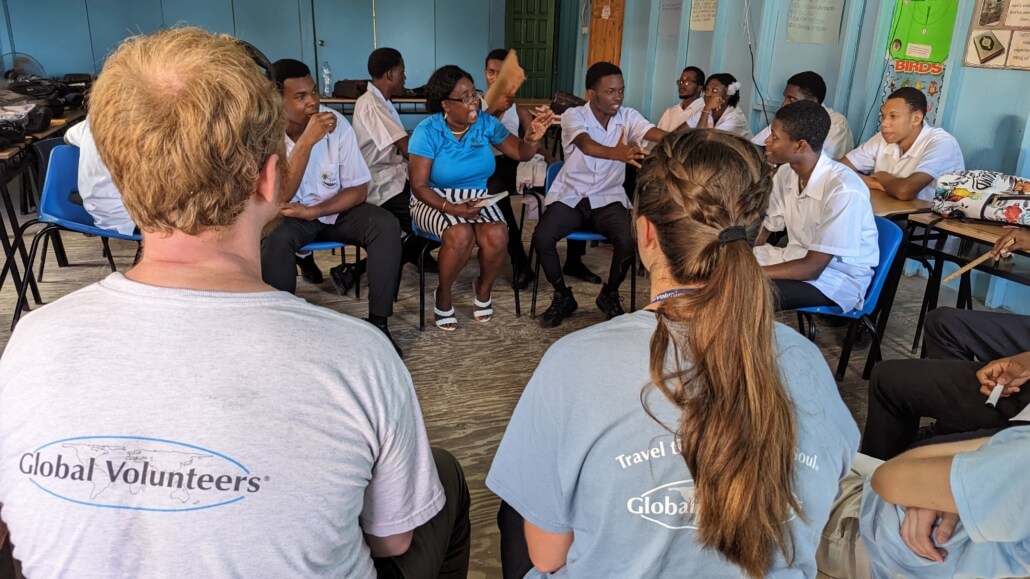
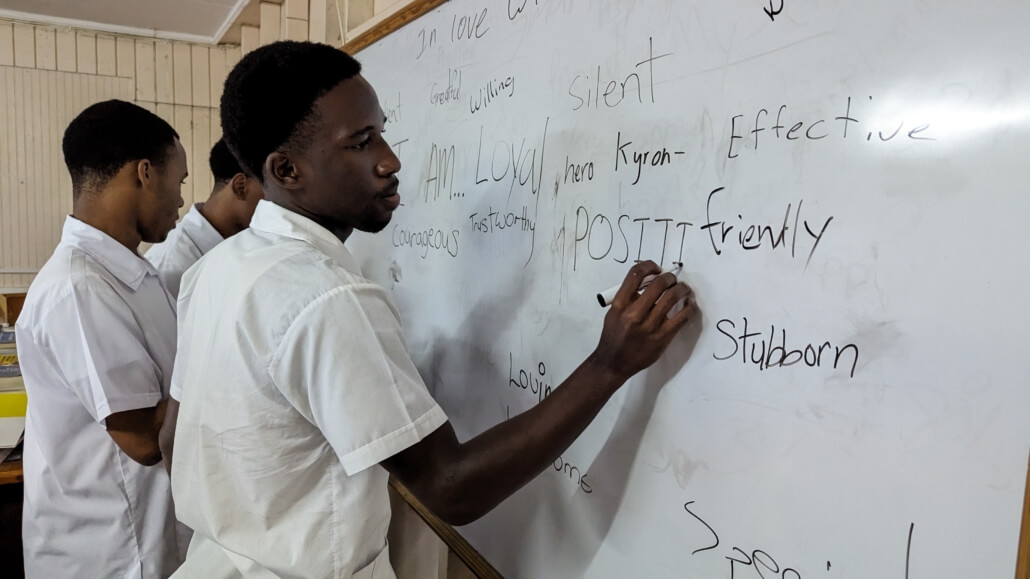
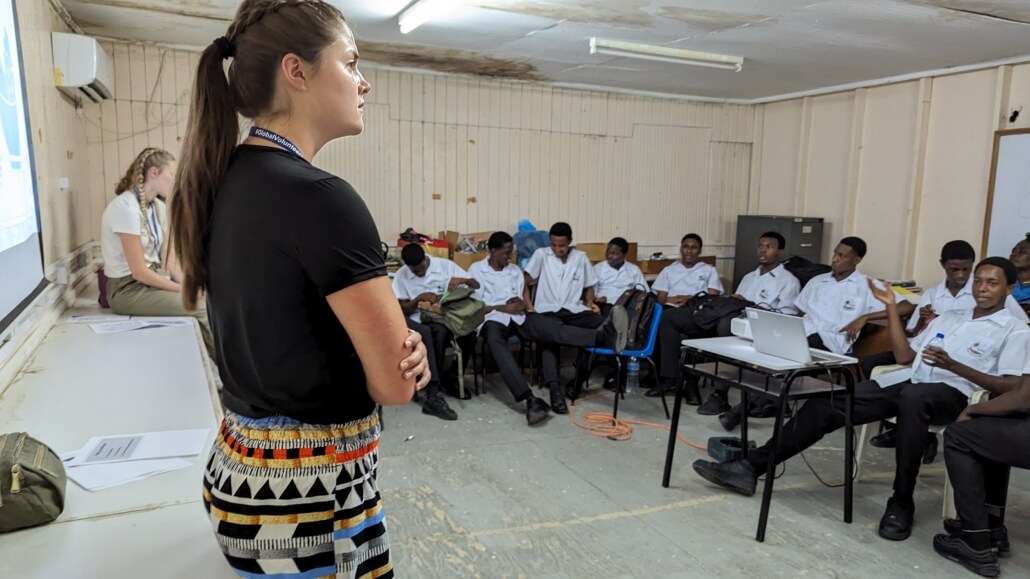
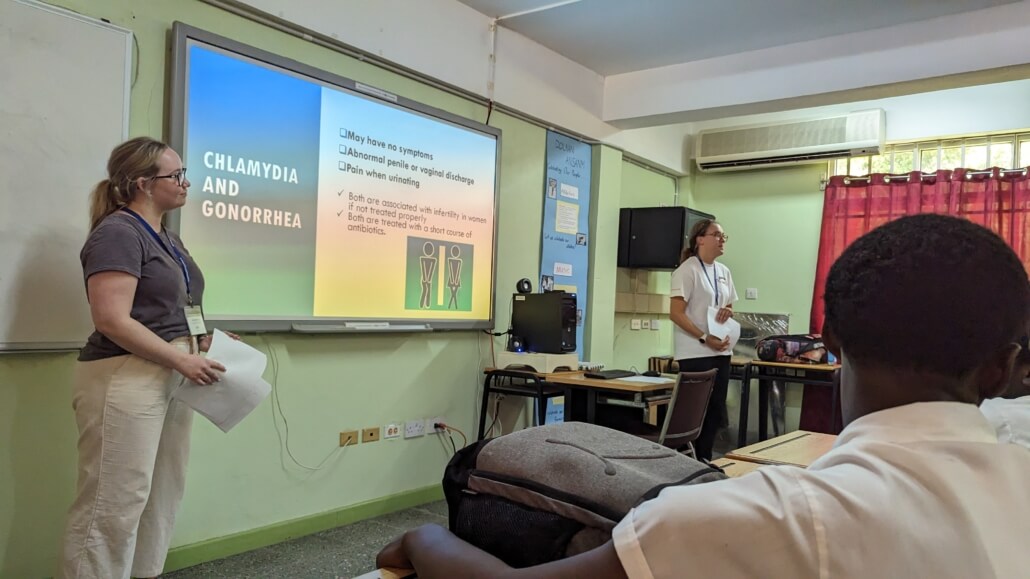
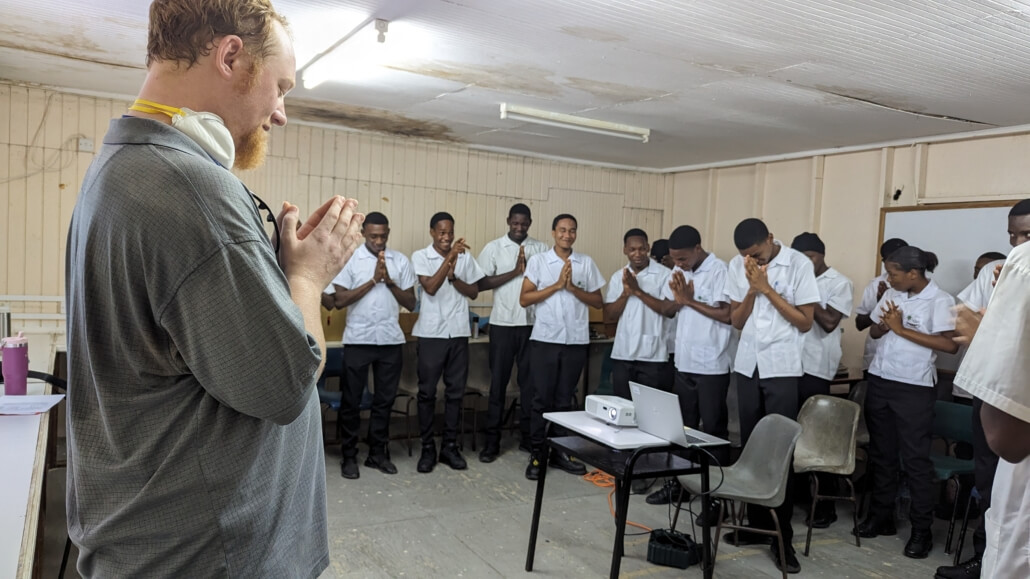
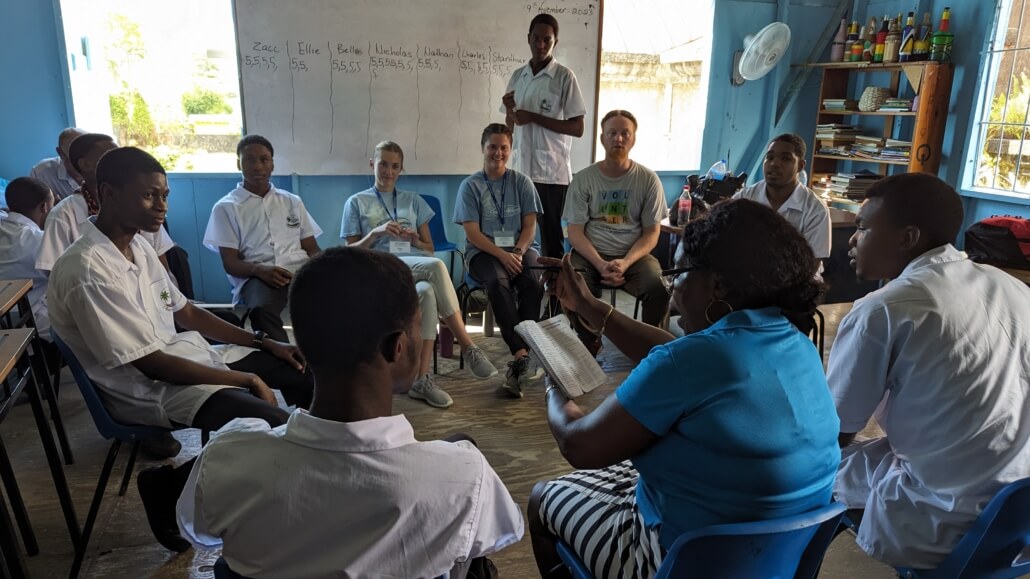
Preparing for the Road Ahead
Like most of the Eastern Caribbean, St. Lucia continues to grapple with supply-chain delays and surging consumer food and fuel prices exacerbated by the war in Ukraine. In the midst of these challenges, Mrs. Mittille is steadfast in her optimism; exuding positivity for the sake of the students. “I have faith in God that everything will work out. The Virtues are at the center of our program, and we know that by teaching those virtues, we are providing them with the strength to succeed.” She refers to a well-worn set of cards and a poster on the wall. “This is what we read to our students every day. Every day a new virtue.”
The island’s youth are three times more likely to be unemployed than adults. According to UNICEF St. Lucia statistics, 33 percent of youth were employed before the pandemic, compared to 87 percent of adults. Unemployment is declining – slowly, in small increments. The Department of Finance forecasts 3 percent economic growth by year’s end, 2023.
“They have the opportunity to make their (career training) choices,” says Mrs. Mittille. “At the end of the program, every young person should be skilled to go out there and obtain and sustain a job. They should be well-rounded, with a positive attitude.” That’s what distinguishes the CARE students, Mrs. Mittille insists. “The attitude is what we sell to the businesses. That is how they get their six- to eight-week internships in May.” The internship is the final stage of the program, and according to Mrs. Mittille, 87 percent of those interns obtain employment. “Because of them, the business places call us for others.”
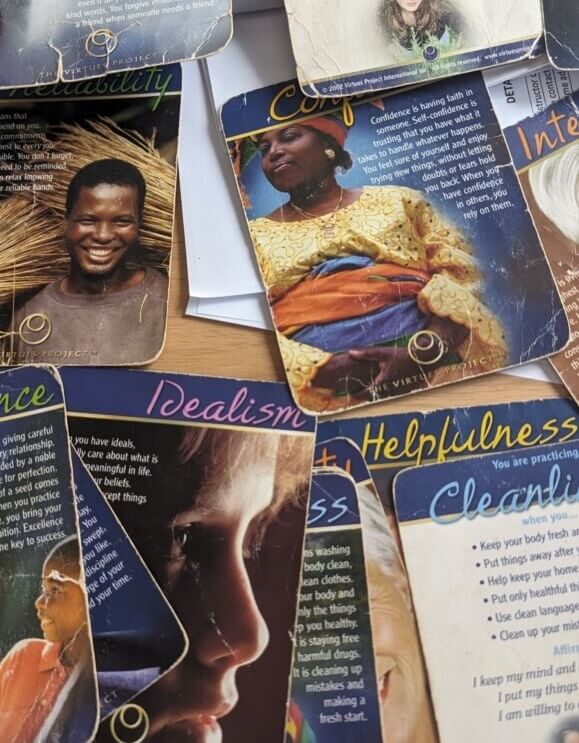
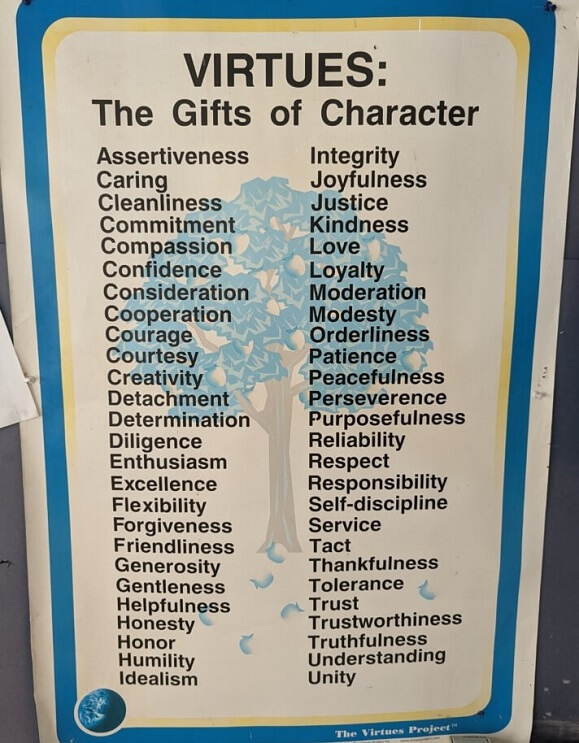
“The businesses call us looking for our students,” she says. For instance, leading up to the holiday break (three weeks for CARE students) the Massy supermarket chain is contacting the school for part-time positions. “They know about the attitude. When you have a positive attitude, everyone is willing to work with you.”
The same positivity is expected for CARE’s teachers. “If you’re not committed to young people, you will not survive in this program. It’s a commitment, a passion, because none of us are paid very well. We all have a love for our people. You have to be mother, father, counselor, police officer, doctor, everything…to ensure that the students succeed.” Eight teachers are employed at CARE. The longest-serving teachers have taught for 22 to 25 years. Mrs. Mittille began as an ADP instructor when the program began in Anse la Ray. She’s witnessed 30 graduating classes. In fact, she’s planned most of them. And, the low rate of outside assistance sparks a moment of frustration. “There’s no reason why our students should be struggling. Our government needs to see that the students are our future. We even go into the secondary schools to talk about the attitude we teach. We shouldn’t be struggling, but we are.” What keeps her grounded and looking forward? “Seeing the students blossom. That is the satisfaction. That is the future.”
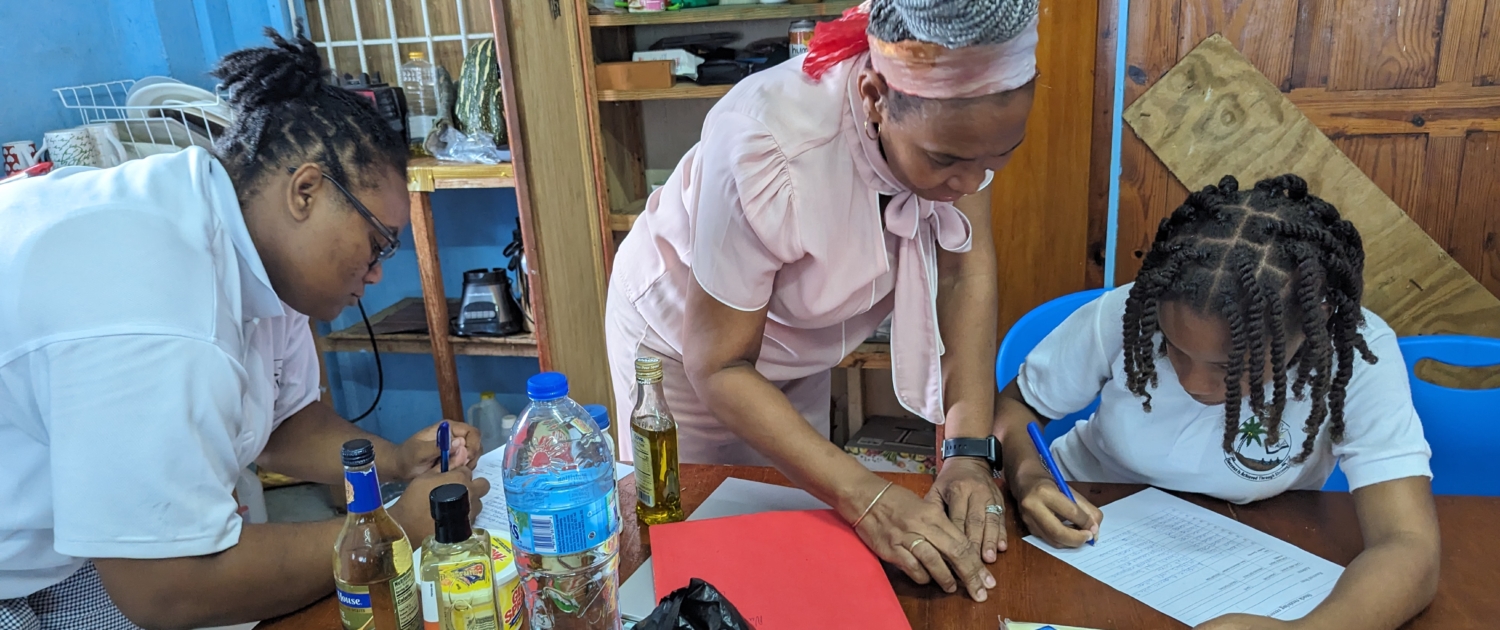
How You Can Help
Volunteers of all backgrounds are needed year-round to assist at CARE, area primary and secondary schools, and regional medical clinics. Work projects focus primary on education – math and literacy tutoring, health and nutrition education, and life skills. Occasional special projects arise throughout the year, depending upon current needs – such as swimming lessons, classroom improvements and school agricultural activities.
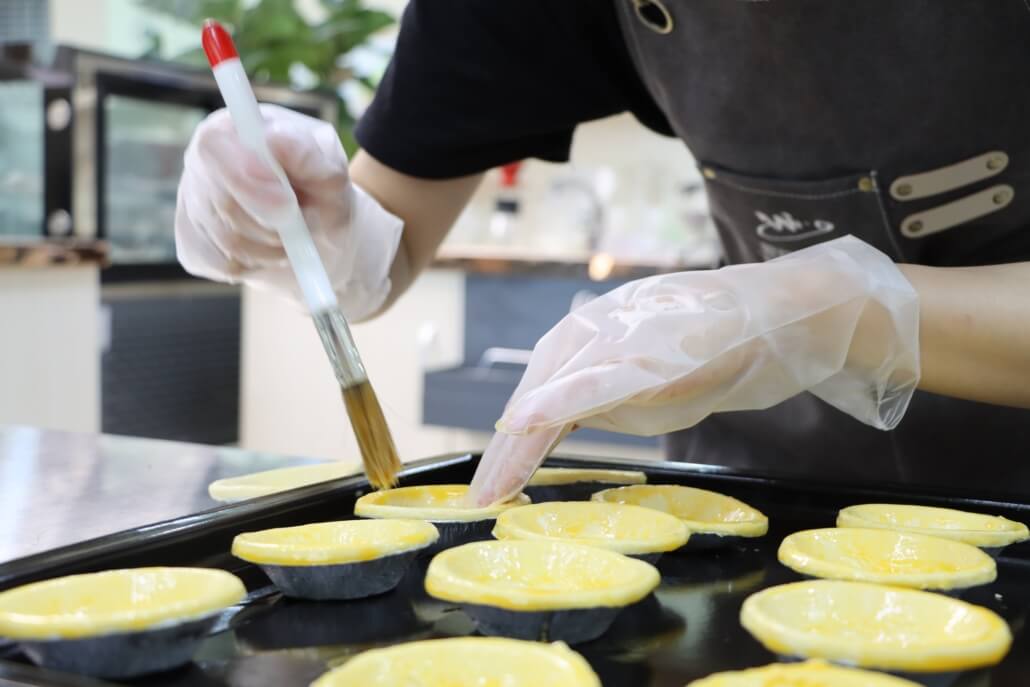

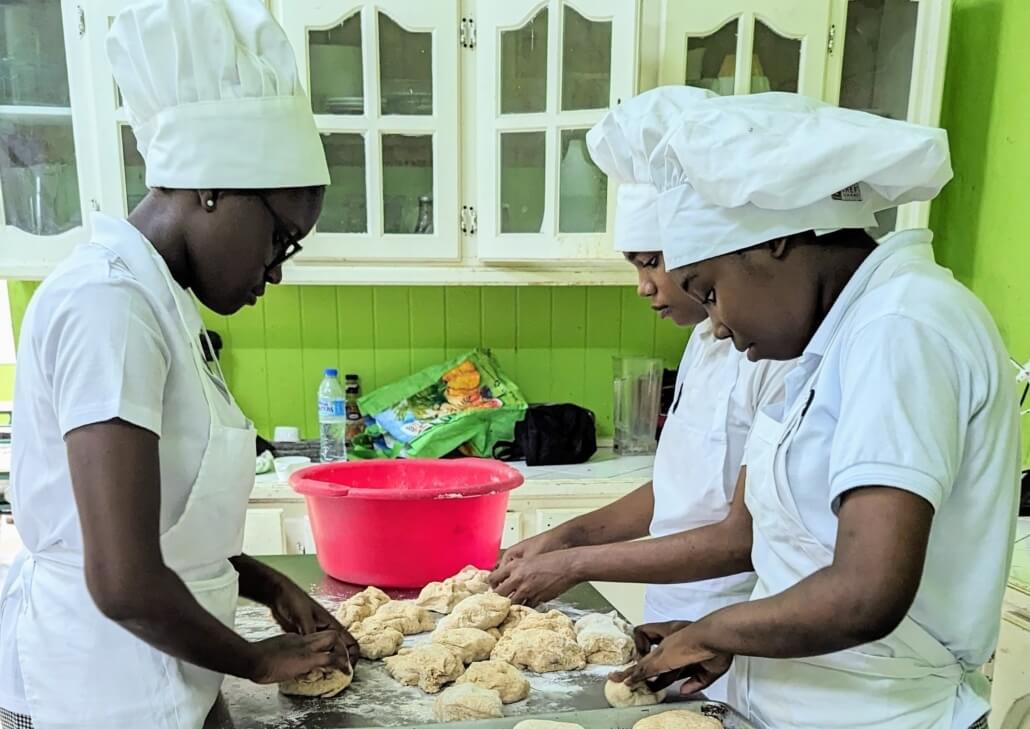
As always, class resources are scarce. School buildings are in need of repair. Meager teaching materials expire. All contribute to considerable teacher and student stress. Students in our partner communities deserve and wish for an upgrade in their learning environments, and when donations are received, significant improvements are celebrated. In 2024, CARE’s culinary program hopes to move to a more suitable building – large enough to simulate a commercial kitchen and provide adequate learning space. However, the program desperately needs adequate food preparation materials such as pots, pans, knives, and much more. You can help! Please select “St. Lucia” on our donation page here and choose the largest amount you can afford to contribute, to supply these students with the tools they need for successful training. You may add a “donation note” designating the CARE Culinary Program – or any other project you desire to support.
Many different funding opportunities are available – take a moment now to help CARE students thrive! Thank you!

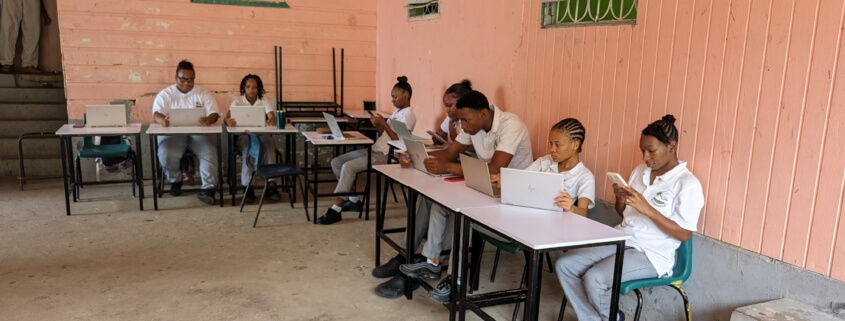


Leave a Reply
Want to join the discussion?Feel free to contribute!